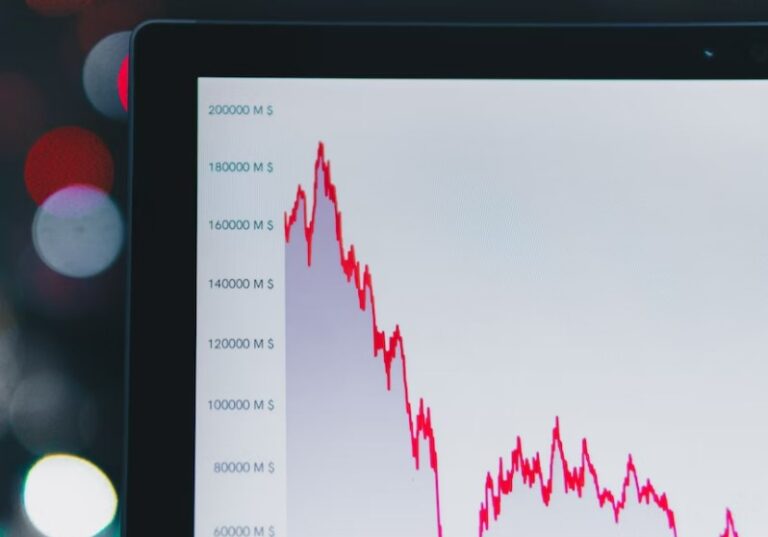A recession is a significant decline in economic activity that persists for an extended period, usually marked by a drop in Gross Domestic Product (GDP), income, employment, industrial production, and retail sales.
It is an economic downturn characterized by reduced consumer and business spending, widespread job losses, and falling stock market prices. Understanding the causes and implications of recessions is crucial for policymakers, investors, and the general public to make informed decisions during these challenging times.
Table of Contents
The causes of recession
Recessions are typically caused by a combination of factors that affect the overall economic environment. Here are some causes of recessions:
- Business cycle theory: recession is a natural part of the business cycle, which consists of four phases – expansion, peak, contraction, and trough. During the expansion phase, the economy grows, businesses invest, and employment increases. The peak is the point of maximum economic growth, after which the economy starts to contract, leading to a recession;
- Monetary factors: central banks can influence the economy by setting interest rates and controlling the money supply. If interest rates are too high, borrowing becomes expensive, and businesses may reduce investment and hiring. Alternatively, if interest rates are too low, inflation may occur, and consumers may overspend, causing a bubble that can eventually burst, leading to a recession;
- Fiscal factors: government policies, such as tax cuts, spending, and regulation, can also influence the economy. For example, if the government cuts taxes, consumers may have more disposable income, increasing spending and boosting economic growth. However, if the government spends more than it can afford, it may lead to a budget deficit, which can have a negative impact on the economy;
- External factors: events outside the country can cause a recession. For example, an oil crisis or a natural disaster can disrupt supply chains and cause inflation, leading to a recession. International trade and political instability can also affect the economy, leading to a recession.
The symptoms of recession
Recessions can have several symptoms that indicate an economic downturn. Here are some common symptoms of a recession:
- A decline in GDP: Gross Domestic Product (GDP) is the total value of services and goods produced within a country. During a recession, GDP declines for at least two consecutive quarters, indicating a significant decrease in economic activity;
- Increase in unemployment: During a recession, businesses may cut jobs or reduce their workforce to save costs. This can increase unemployment as more people lose their jobs and cannot find new ones;
- Decrease in consumer spending: As the economy slows down, consumers may become more cautious about spending money. This can lead to a reduction in consumer spending, which can have a negative impact on businesses and the overall economy;
- Stock market volatility: The stock market can be an excellent indicator of the state of the economy. During a recession, the stock market may become more volatile, with sharp drops and increased uncertainty about the future.
The impact of recession
Recessions can have far-reaching impacts on the economy and society as a whole. Here are some of the most common impacts of a recession:
- Economic impact: recessions can lead to a decline in GDP, decreased consumer and business spending, and increased unemployment, which can have a significant impact on the economy. These impacts can be felt across various sectors, including manufacturing, construction, retail, and finance;
- Social impact: recessions can have a negative impact on social well-being, leading to increased poverty, homelessness, and healthcare issues. Individuals and families may struggle to pay for basic needs, such as healthcare, food, and housing, which can have long-term effects on their quality of life;
- Political impact: recessions can also significantly impact the political landscape, as policymakers may face pressure to take action to mitigate the effects of the recession. Recessions can sometimes lead to social and political unrest as individuals become frustrated with the government’s response to the crisis.
Examples of recession
There have been several notable recessions, each with unique characteristics and causes. Here are some examples of significant recessions:
- The Great Depression: This severe economic downturn lasted from 1929 to 1939. Many factors, including stock market speculation, decreased consumer spending, and increased unemployment, caused it. The Great Depression significantly impacted the global economy and led to significant changes in economic policy;
- The 2008 Financial Crisis: This was caused by a housing market bubble and the subsequent collapse of the mortgage industry. This led to a decline in economic activity, a decrease in consumer and business spending, and an increase in unemployment. The 2008 financial crisis significantly impacted the global economy and led to the Great Recession until 2009;
- COVID-19 Pandemic recession: The COVID-19 pandemic led to a global recession in 2020. The pandemic caused a significant decline in economic activity as businesses closed and individuals reduced their spending. The COVID-19 pandemic recession has significantly impacted the global economy, leading to job losses, business closures, and increased government spending to mitigate the effects of the recession.
Strategies to mitigate it
There are several strategies that policymakers can use to mitigate the effects of a recession. Here are some:
- Monetary policy: Central banks can use monetary policy to stimulate economic growth during a recession. This can include lowering interest rates to encourage borrowing and investment, increasing the money supply, and providing financial support to banks and other financial institutions.
- Fiscal policy: Governments can use fiscal policy to support economic growth during a recession. This can include increasing government spending on infrastructure, providing tax breaks or incentives to businesses, and providing financial support to individuals and families through programs like unemployment insurance.
- International cooperation: During a global recession, international cooperation can be essential in mitigating its effects. Governments and international organizations can collaborate to coordinate fiscal and monetary policies, provide financial support to struggling economies, and prevent the spread of financial instability.
These strategies can effectively mitigate the effects of a recession, but they must be implemented carefully and with consideration for their long-term impacts.
Recessions have far-reaching impacts
A recession is a significant economic downturn that can impact the economy and society. Recessions have several causes, including business cycles, monetary and fiscal factors, and external factors, such as global events or natural disasters. The symptoms of a recession can include a decline in GDP, increased unemployment, decreased consumer spending, and stock market volatility.
It’s crucial to understand that recessions are a natural part of the economic cycle and will inevitably occur from time to time. Understanding recessions’ causes, symptoms, and impacts can help individuals, businesses, and policymakers prepare and respond appropriately to mitigate their effects.
Read also: UK in recession in 2023: the reasons and consequences of the crisis












